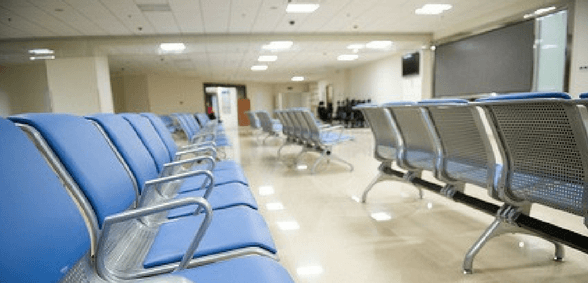
CREDIT: This story was first seen in the Mail Online
A firm is targeting NHS family doctors to sign up to a scheme offering private appointments around their contracted NHS hours, Mail Online reports.
It has prompted fears that desperate patients, struggling to see their GP, will be forced to stump up to see doctors charging for slots during lunch, and before and after surgeries and during evenings and weekends.
An official NHS report in June revealed one in nine patients – 11% – could not get an appointment the last time they tried.
Doctaly already has 25 practices on board following a successful pilot scheme in London and is now rolling its service out nationally from next week.
The firm’s founders believe that GPs “can and should” provide fee-paying services in parallel to NHS services to relieve the pressure on their over-stretched practices.
But critics say the service will create a “two-tier health system”, and is a step closer towards privatising the NHS.
The news comes after family doctors earlier this week threatened to quit the NHS and go private in protest at the deepening crisis.
Last year, Doctaly ran a pilot for six months involving 10 practices in Barnet and Enfield. The firm revealed patients paid for 500 appointments.
It now has 25 practices and 50 GPs currently signed up, all based in the capital and has secured expansion capital and is in talks with practices around the UK.
Co-founder Dr Dinesh Silva, a GP partner at Connaught Surgery in Palmers Green, said: “Understanding that whilst GPs are undeniably busy, there is often an opportunity to fit in additional appointments during quieter times, such as just before and after clinics or during lunch.
“We set about planning how to fill these times with private patients.
“It’s a ‘win win’ – patients get to see a doctor quickly and GPs can maximise their available time outside of their NHS contract hours and sweat their existing assets, such as their practice.”
How does it work?
Doctaly has been described as an Uber-style service as patients log on to the Doctaly website to book an appointment with an NHS GP at a time and location that is convenient to them.
If they cannot see their own GP or one registered at their practice, they can choose another doctor working nearby.
Consultations are for 15 minutes – around five minutes longer than a standard NHS one.
The cost for a consultation is £39.99-£49.99 during ‘normal hours’, which is 9am to 6pm.
According to Doctaly, GPs will be able to hike up the price to up to £69.99 for a session at busier times and for out-of-hours and weekends.
Users have access to a number of private medical services including women’s health, child health, men’s health, private medicals, sexual health screening and private STD testing.
Doctaly GPs are able to refer patients to specialists in the private sector only.
If the patient wishes to see an NHS specialist, they would be signposted back to their NHS GP to arrange it.
Waiting times to see a GP could hit three weeks by 2022, research published in June suggests.
This week, GPs called for the British Medical Association to support practices to become private, complaining they ‘can no longer operate’ within the NHS.
The issue will be debated at the British Medical Association Local Medical Committees conference in London next week.
Last month, health secretary Jeremy Hunt admitted traditional family doctors are at risk of dying out because so many GPs are leaving the NHS.
Dr Jackie Applebee, who sits on the BMA GPs committee, has previously said Doctaly was ‘very worrying’ and would ‘further destabilise general practice’.
She told Pulse: “This sort of service is the slippery slope towards privatisation of the NHS.
“This is not the answer to the crisis in general practice. I acknowledge that access is a problem, but the fault for this lies at the door of the government who have dis-invested in general practice for years so that we now have an unprecedented workforce crisis.
“It introduces the principle of topping up NHS services with purchased services if one has the disposal income.
“If the more affluent begin to do this in significant numbers it is only a small step to an insurance-based health service.”
Don’t forget to follow us on Twitter, or connect with us on LinkedIn!

Be the first to comment